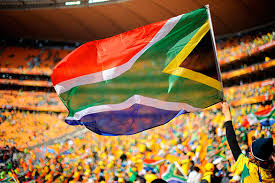By Andrew Warshaw
March 15 – Two weeks after the South African authorities accused FIFA of not acting decisively enough following a lengthy match-fixing investigation, three officials have been banned over their role in rigging a string of international friendlies in the build-up to the 2010 World Cup which the country hosted.
Leslie Sedibe, former South African Football Association (SAFA) chief executive, was the most high profile of the three and received a five-year ban plus a SFr20,000 fine. Two former SAFA refereeing department officials, Steve Goddard and Adeel Carelse, have each received two-year bans.
The South African FA said it welcomed the sanctions.
“We are glad this matter has ultimately reached this stage since SAFA reported the matter to FIFA almost four years ago,” said Poobalan Govindasamy, chairman of the SAFA ethics committee. “It had dragged on too long for our liking and was starting to have an impact on us as an association and our valued stakeholders.
“At SAFA we have a zero-tolerance policy for any corrupt activity which impacts negatively on this beautiful game and for that reason we welcome strong measures against any individual who is found guilty of such offenses.”
Last year, Lindile Kika, SAFA’s head of national teams in 2010, was banned from all football activities for six years. SAFA officials were under investigation for allowing a company controlled by notorious Singaporean match-fixer Wilson Raj Perumal, Football 4U International, to appoint the referees for the games in question.
While FIFA hasn’t identified them, they are widely reported to have been South Africa’s 2-1 win over Colombia and 5-0 win over Guatemala a few weeks before the opening of the World Cup. All three goals in the South Africa-Colombia game were penalties whilst three spotkicks for handball were also awarded in the win over Guatemala, refereed by Niger’s Ibrahim Chaibou who was described by Perumal as his “favourite” official. Other suspect warm-up matches were against Thailand and Bulgaria.
Sedibe, a high-profile figure in South Africa, is now chief executive of Proudly South African, a company which promotes South African goods and services.
South African authorities might have welcomed the ban, and in doing so attempt to deflect attention away from their own accountability, but the fact remains that the latest sanctions cast another a dark shadow over Africa’s first World Cup, undermined more recently by damaging allegations of corruption in the bidding process.
Contact the writer of this story at moc.l1744323600labto1744323600ofdlr1744323600owedi1744323600sni@w1744323600ahsra1744323600w.wer1744323600dna1744323600

